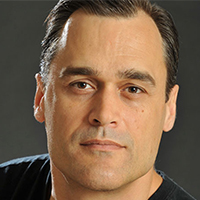
The economist Justin Wolfers has an excellent explanation of why today’s British election is so hard to forecast. The essential problem (which Canadians are quite familiar with) is that not all voters will choose the candidate and party they actually prefer. A voter may vote strategically. And strategic voting entails acting on what you believe others will do. But it’s not just one voter acting on his belief about what others will do. It’s many. And they’re all looking at each other, forming beliefs about what others believe, then revising their beliefs in light of what they believe others believe, and so on. The reflections are potentially endless, like holding a mirror to a mirror. As Wolfers summarizes, « it’s not just beliefs about beliefs that matter, but beliefs about beliefs about beliefs, and so on. It’s turtles all the way down. »
Oskar Morgenstern, economist and co-creator of game theory, illustrated how bewildering the sort of dynamic can be with a simple little story about Sherlock Holmes and his nemesis, Moriarty. Holmes is on a train bound for Dover. Midway, it stops at a station. Holmes sees Moriarty on the platform. Moriarty sees Holmes. Holmes quickly calculates that Moriarty now knows Holmes is on a non-express train bound for Dover so he will get on an express train for Dover, arrive before Holmes, and ambush his rival. In order to elude Moriarty, Holmes must therefore get off at the next station.
But then Holmes realizes there is a flaw in his logic: Moriarty is aware that Holmes is aware, therefore he will run through the same calculation, anticipate Holmes’ plan, and also get off at the next station.
Therefore, Holmes concludes, he should not get off at the next station, but continue on to Dover.
But wait! Moriarty will follow that logic and conclude that he, too, must continue on to Dover.
Therefore, Holmes must get off at the next station. But no! Moriarty will …
There’s no way for Holmes to foresee what Moriarty will do. It’s turtles all the way down. He might as well take out one of those big Victorian pennies and flip it.
Which may not be an unreasonable way to call today’s election.








